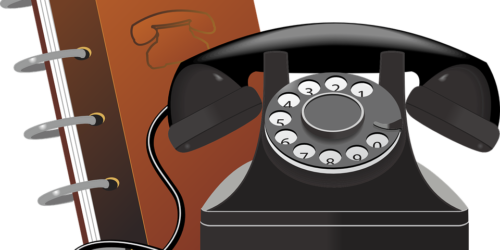Inside the Guide: Asking the Right Research Questions
Family history research is a journey of discovery. In a way, it’s like being in your own classroom with  a great teacher and a vast array of resources. Picture yourself there. Would you say to the professor, “OK, tell me all I need to know about geography (or history, or whatever)”? Or would you take the time to think about the specific questions you really wanted to know about? The professor would probably really appreciate the latter approach!
a great teacher and a vast array of resources. Picture yourself there. Would you say to the professor, “OK, tell me all I need to know about geography (or history, or whatever)”? Or would you take the time to think about the specific questions you really wanted to know about? The professor would probably really appreciate the latter approach!
Yet we may be tempted to fall back on the easy approach with family history research. Starting your journey with “I need to fill in these gaps in my pedigree chart” is a bit like expecting all the information to come to you at once. Asking the right questions not only gets you better results, but it gets you invested in your ancestors’ lives and who they were. This can be a powerful for driving your research ahead, as curiosity will open many doors.
Let’s take a look at the art of asking research questions. A premature or vague question may lead you down the wrong path, while well-thought-out questions can open the doors to discovery.
Identifying a Research Line
In Project 4: Discover of The Family History Guide, let’s take a look at Goal 2: Identify a Line to Do Research On. Choice A is the warm-up; it discusses how to find ancestors with missing information, such as dates, places, unknown parents, etc. The article in Step 3 has some good tips on deciding where to start, and the FamilySearch video emphasizes choosing an ancestor with a name and date and location of a life event (birth, marriage, or death). This will make it easier to find records for that individual.
Sample Questions to Ask
In Choice B, think about Step 1 for a moment. It says: “Ask the questions you’re most interested in: Why did an ancestor move? Are there missing children in a gap on a family group record?” Choosing a question you are interested in will help you drive your research and keep trying alternatives if you get stuck.
did an ancestor move? Are there missing children in a gap on a family group record?” Choosing a question you are interested in will help you drive your research and keep trying alternatives if you get stuck.
Step 2 points you to a helpful video from Ancestry that helps you formulate good, specific questions for research. You can also post these questions to genealogy forums, user groups, and Facebook pages to get extra help. And while you’re on these help sites, be sure to notice the types of research questions that others are asking. The better the questions a person asks, the better the responses from the forum are likely to be.
Step 3 links to an article from the Brick Wall Genealogist. It reminds us that the questions we need to consider usually have to deal with identity, relationship, events, and situations. It also explains how to take an overall, high-level question and break it down into smaller questions that can guide your research.
Other Resources
In The Family History Guide, the Vault has a number of interesting articles and videos to help with your basic research. In the Research Basics section, the article titled “How to Guess Where to Start” can give you some additional ideas on crafting questions for your research efforts. The Research Strategies section also provides some good pointers on how to proceed, as does Goal 6: Solve Problems in Project 4 of The Family History Guide.
Conclusion
Take the time to ask specific, focused questions about your research, and you’ll find that your research will become specific and focused as well. Instead of hoping for the answers to come to you, you’ll be knocking on the doors where the answers are hiding!






